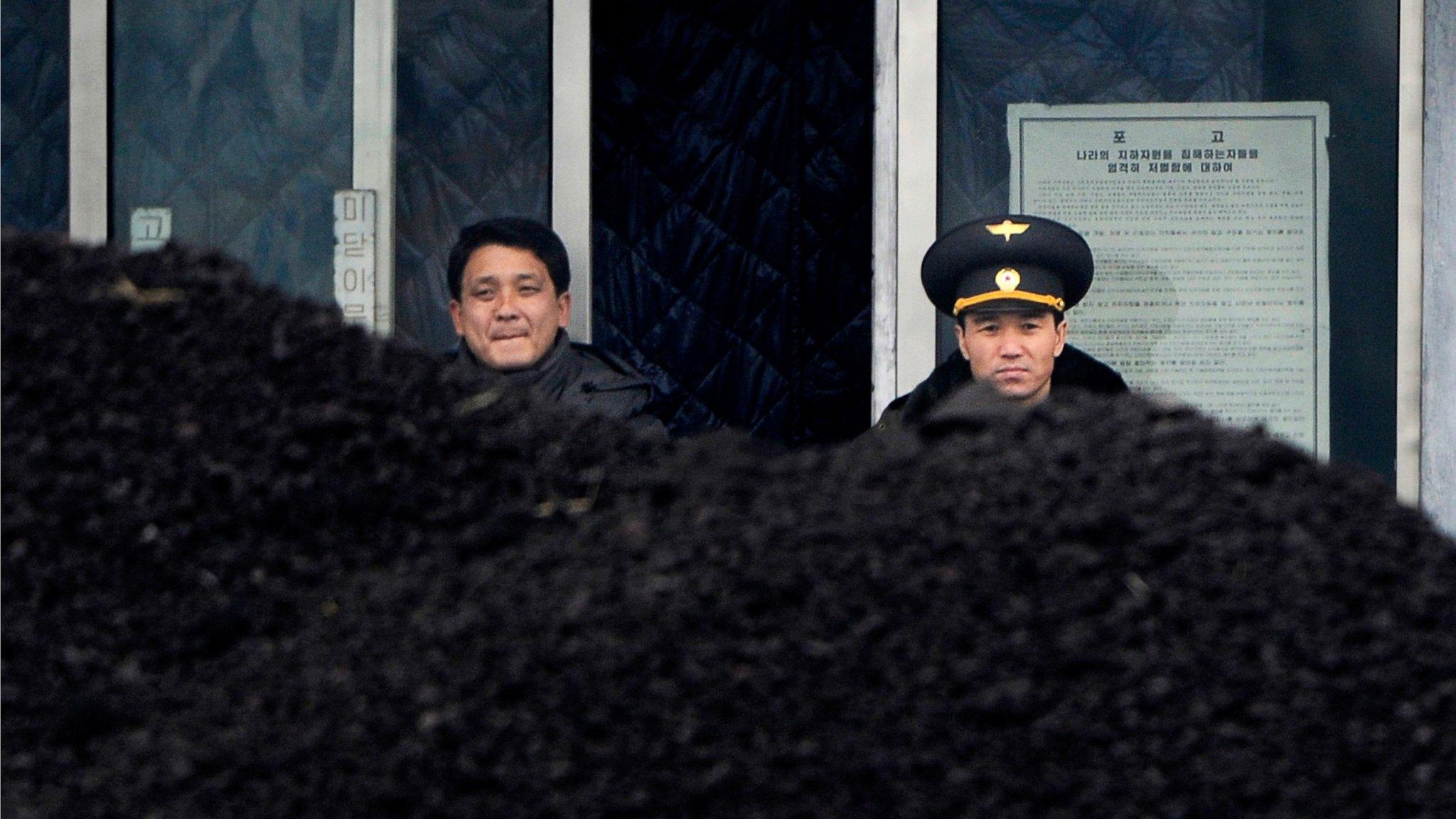North Korea crisis: Pope urges international mediation
- Published
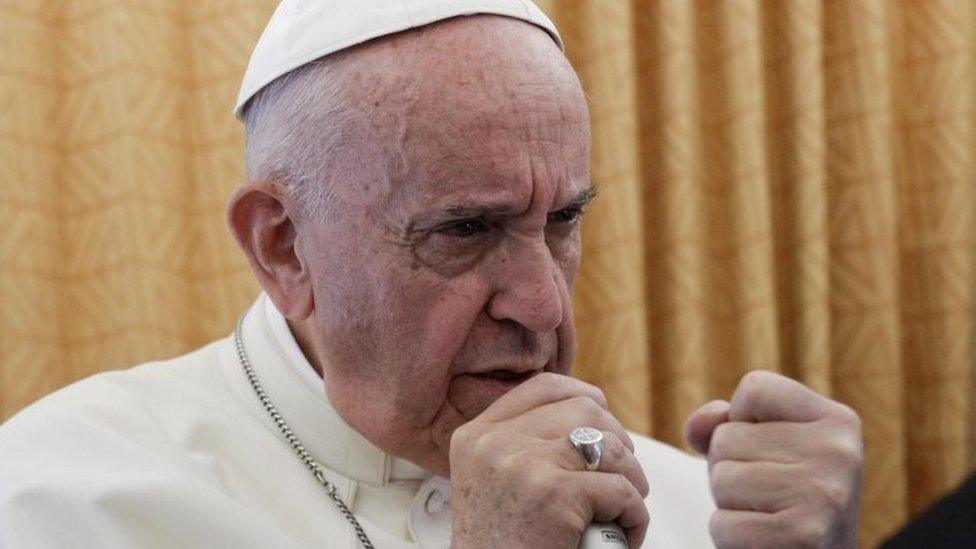
Pope Francis warned of a war in which "a good part of humanity" would be destroyed
Pope Francis has called for international mediation to ease rising tensions between the US and North Korea over Pyongyang's nuclear activity.
The pontiff suggested that Norway, for example, was "always ready to help".
He warned the crisis risked sparking a devastating war in which "a good part of humanity" would be destroyed.
His comments came hours after North Korea test-fired another ballistic missile, which the US and South Korea say exploded shortly after take-off.
The missile was fired from a site in South Pyeongan province, north of Pyongyang, South Korea said.
US President Donald Trump accused Pyongyang of showing "disrespect" towards China and its president.
Mr Trump recently hosted Chinese President Xi Jinping and praised him for "trying very hard" on North Korea.
The test came just hours after the UN Security Council had discussed North Korea's missile programme.
Speaking to reporters aboard his plane after a visit to Egypt, Pope Francis said: "There are so many facilitators in the world, there are mediators who offer themselves, such as Norway for example."
He warned that the situation had become "too hot" and said the "path is the path of negotiations, of a diplomatic solution".
The United Nations, he said, had become "too watered down".
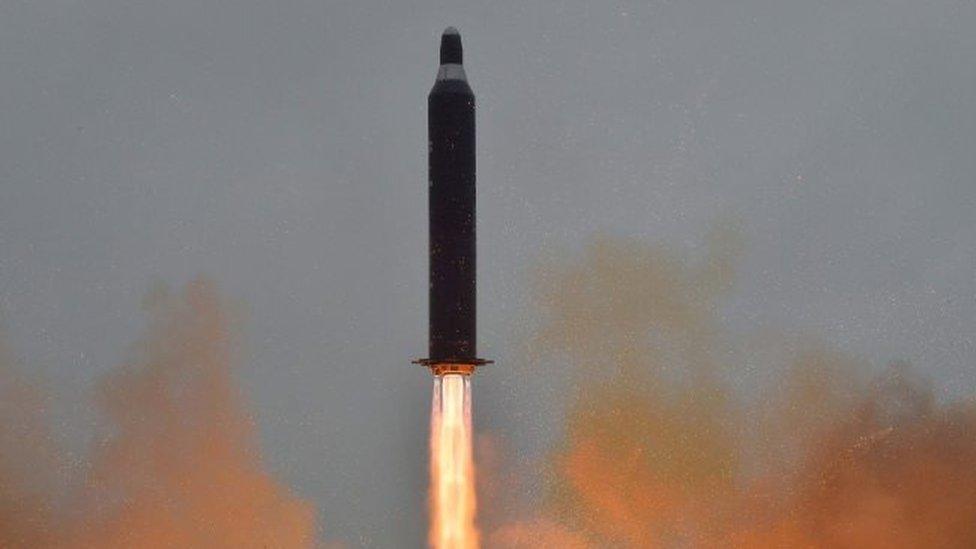
There have been a number of missile tests by North Korea (file photo)
In 2003 six-party talks - involving the two Koreas, the US, China, Japan and Russia - were launched to address concerns over the North's nuclear programme. But Pyongyang withdrew from the negotiations in 2009.
US 'armada arrives'
Tensions in the region have increased lately, with both North and South Korea conducting military exercises.
North Korea is believed to be continuing efforts to miniaturise nuclear warheads and fit them on long-range missiles capable of reaching the US.
It is not known what kind of missile was unsuccessfully launched on Saturday. However, US officials told Reuters news agency that it was probably a medium-range missile known as a KN-17.
The land-based, anti-ship ballistic missile has already had two failures.
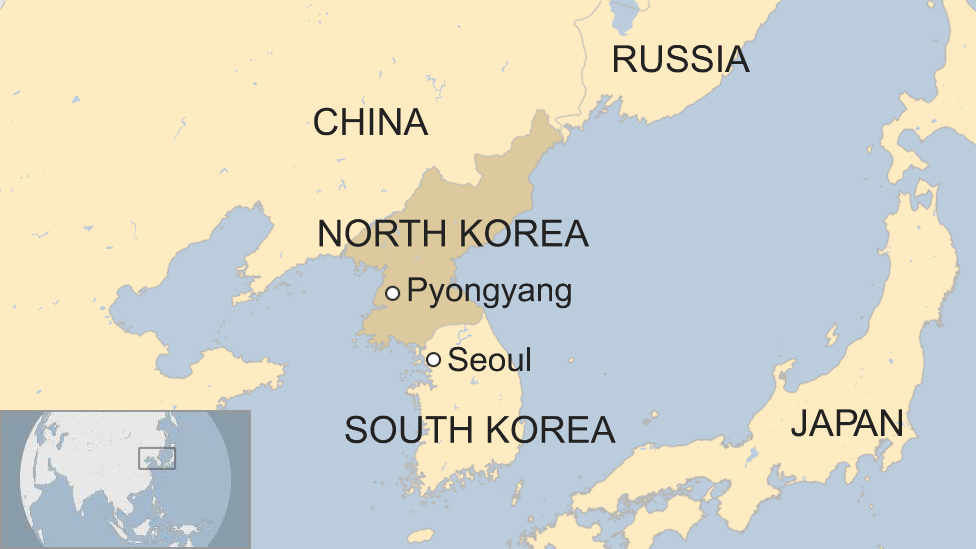
Meanwhile, the American aircraft carrier USS Carl Vinson and supporting warships have arrived on the Korean peninsula.
The US has threatened to use military force in North Korea if necessary.
In an interview with CBS , externalon Saturday, Mr Trump said he would "not be happy" if North Korean leader Kim Jong-un went ahead with a further nuclear test.
Asked whether that would mean US military action, he said "I don't know. I mean, we'll see."

Are the missile failures unusual?
North Korea has had two failed missile launches this month - but that does not mean they will always fail, an expert has said.
Jeffrey Lewis, a scholar at Middlebury Institute of International Studies at Monterey, told the BBC this was to be expected when testing a new missile as there was such a variety of things which could go wrong.
"Every time you have a new missile there are going to be growing pains," he said. "There is nothing unusual if it is new missiles.
"It will fail until it doesn't.
"In fact, the [American] rocket which put Alan Shepard [the first US man] in space was known as 'Old Reliable', but it failed nine out of 10 of its first tests."
Data collected by his institute also suggested North Korea's old missiles "work just fine", he added.
Kim Jong-un this week inspected an intense display of military firepower
How else has tension risen?
Among other developments in recent weeks:
North Korea carried out an earlier failed missile launch and held a massive military parade in an apparent show of strength
The US deployed a group of warships and a submarine to the region
Pyongyang reacted angrily, threatening a "super-mighty pre-emptive strike"
The US began installing a controversial $1bn (£775m) anti-missile system system called Thaad in South Korea - which Mr Trump said South Korea should pay for. Seoul said on Friday there was "no change" in its position that the US would pay for it
Mr Tillerson and US Vice President Mike Pence visited South Korea, reiterating that "all options were on the table" in dealing with the North
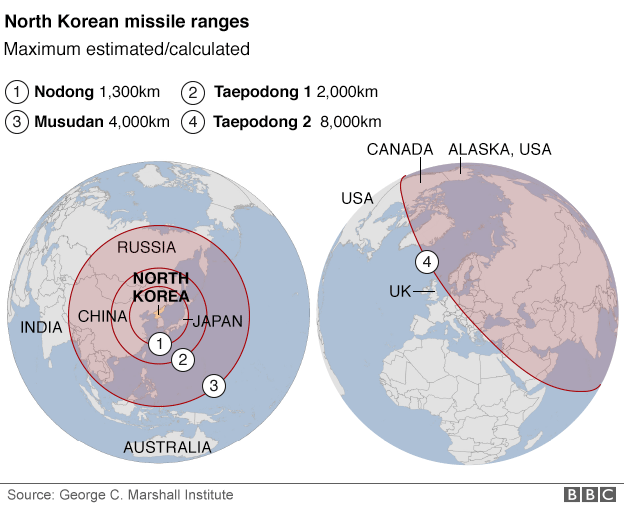
- Published27 April 2017
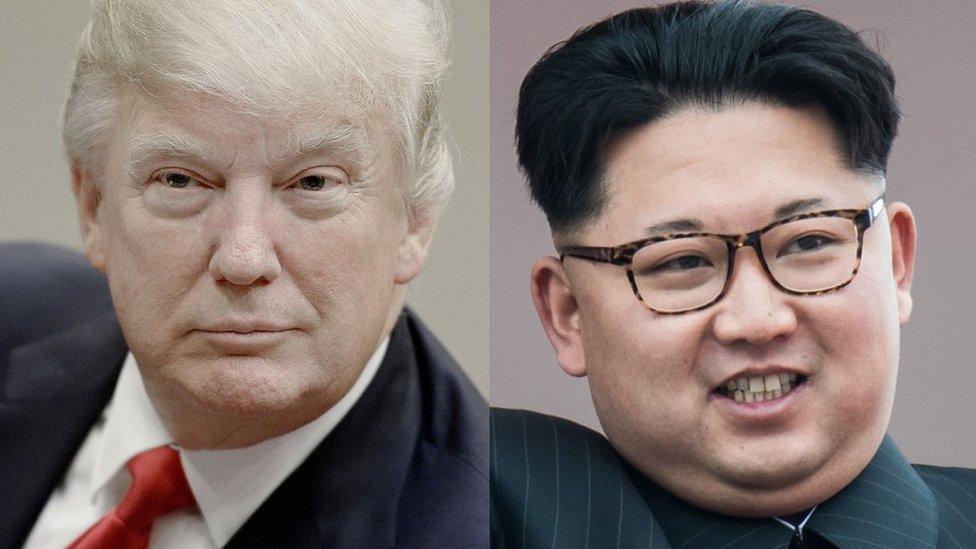
- Published28 April 2017
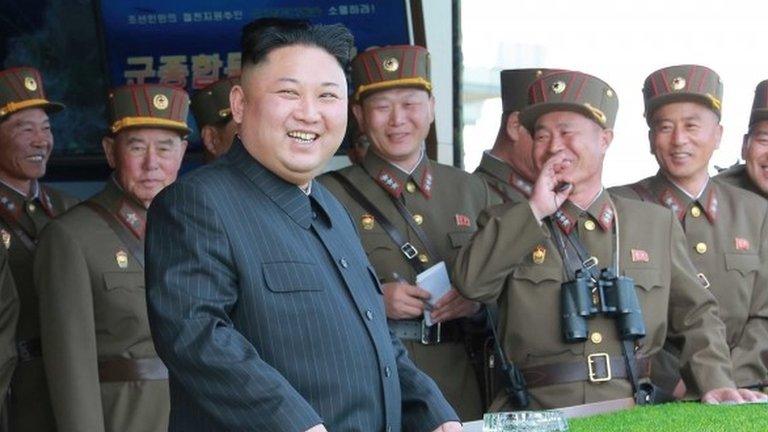
- Published27 April 2017
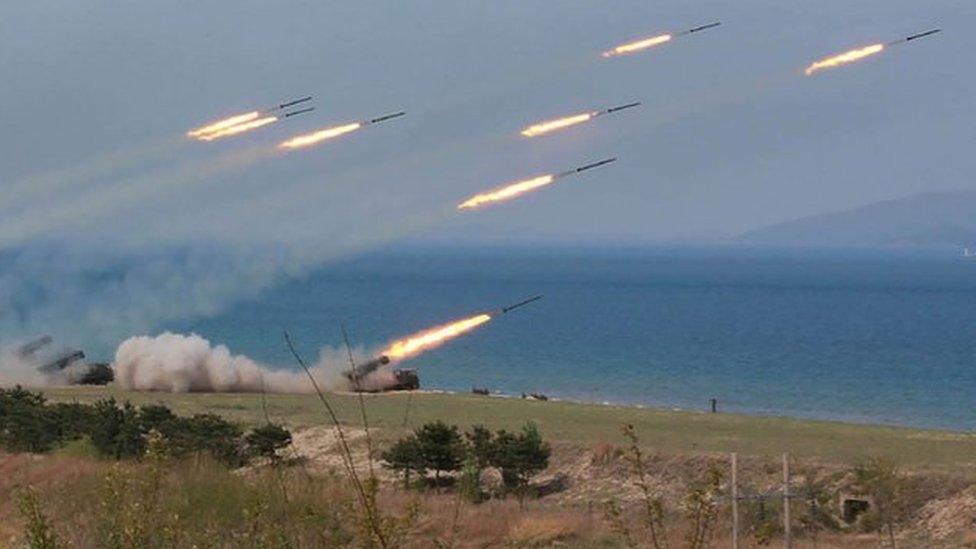
- Published10 August 2017
- Published21 April 2017
- Published4 July 2017
